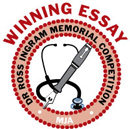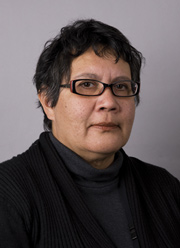With permission from my son I am able to tell this story. I have not used his name for privacy reasons.
“Historical trauma” is defined as the subjective experiencing and remembering of events in the mind of an individual or the life of a community, passed from adults to children in cyclic processes as “collective emotional and psychological injury . . . over the life span and across generations”.1

I was raised in a foster family from the age of two, in suburban Brisbane, Queensland, with three of my siblings. I am a proud Aboriginal woman with close family ties across south-east Queensland and the north coast of New South Wales. My mother is from the Wakka Wakka clan group in Cherbourg and Brisbane. My father is from the Gumbaynggir and Dunghutti communities of the north-coast region of New South Wales.

The effects of this trauma are still with me today.
Wellbeing is an holistic and collective issue, with specific individual health problems being of little relevance if not considered as part of wider social, spiritual and community health . . . Mental illness or disturbance may be seen as a ‘soreness of the spirit’ caused by loss of social and family networks, destruction of kinship and family, dislocation from ancestral lands and the conflict between tradition and the pressures of trying to exist within and alongside European culture.2
- Lindy L Moffatt1
- Australian Institute of Aboriginal and Torres Strait Islander Studies, Canberra, ACT.
- 1. Atkinson J, Nelson J, Atkinson C. Trauma, transgenerational transfer and effects on community wellbeing. In: Working together: Aboriginal and Torres Strait Islander mental health and wellbeing principles and practice. Purdie N, Dudgeon P, Walker R, editors. Canberra: Australian Government Department of Health and Ageing, 2010: 138. http://www.health.act.gov.au/c/health?a=sendfile&ft=p&fid=1708785562&sid= (accessed Apr 2011).
- 2. Schizophrenia Fellowship of NSW Inc. Quality of life. Indigenous: mental illness as understood in Aboriginal communities. 2008. http://www.sfnsw.org.au/About-Mental-Illness/Quality-of-Life/Indigenous/default.aspx (accessed Apr 2011).




